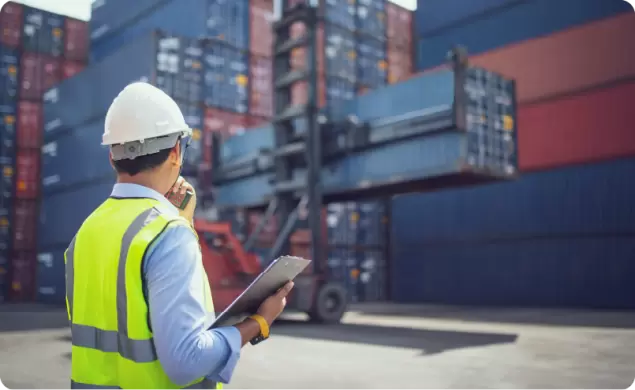Gaston Schul expands to the United Kingdom to better support SMEs after Brexit.
- Wed, July 01, 2020
- 2 minute read

Full-service customs service provider Gaston Schul opens its own office in the United Kingdom on 1 July. For this purpose, the British company MRF Customs Clearance Ltd. was acquired. Gaston Schul is now physically located in the Netherlands, Germany, Belgium, and the UK. Thanks to this network of local offices, Gaston Schul can take full advantage of Brexit by seamlessly arranging the transfer of all necessary customs data for the export and import of goods for companies. Brexit will become a reality on 1 January 2021 and will have an impact on an estimated 35,000 Dutch SMEs.
MRF Customs Clearance Ltd. is a family business near the port of Grimsby and has been active in the field of customs forwarding since 1996. The name MRF will change to Gaston Schul Customs Ltd as of 1 July. “MRF has the necessary permits, extensive knowledge of and access to the logistics market in England. With the takeover Gaston Schul offers existing and new customers a smooth cross-border trade between the European Union and the UK”, says CEO Rob Ewalds of Gaston Schul.
Reduce errors and delays at the border
Gaston Schul has all the necessary data for carrying out customs formalities after Brexit on both sides of the North Sea. “The biggest advantage for our customers is that errors are mitigated and the chance of delays at the border is considerably less,” continues Ewalds. “In logistics speed is everything and carriers’ margins are minimal. So every minute goods stop moving, it’ll cost our customers money. Now that Brexit is a hard certainty, companies increasingly need a customs solution to prevent and reduce additional procedures, administrative actions, and costs. We are now able to offer this to our customers.
‘Hard certainty’
Brexit is a certainty, so Gaston Schul is investing heavily in Brexit solutions for carriers and shippers. Currently, ten people in the UK are being trained by Gaston Schul to handle the flow of import and export declarations between the UK and the EU, and IT links are being made between all (country) systems.
Challenge for SMEs
Brexit can have a major impact on an estimated 35,000 Dutch companies. The United Kingdom is an important export destination for the Netherlands and Germany. When the UK leaves the customs union at the beginning of 2021, physical borders will reappear. Ewalds: “That’s why companies increasingly need a customs solution because of the extra procedures, administrative actions and to prevent and reduce costs”. Gaston Schul helps SMEs assess trade risks and arranges all customs formalities. With the online tool Brexolution, companies can simply make export declarations themselves when exporting to a country outside of the European Union, at half the normal costs. They don’t have to worry about customs knowledge and compliance. After Brexit, this also applies to the United Kingdom.




